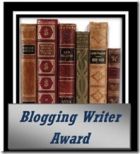Guest Post from Carol Kilgore
Note from Cassandra: Thanks Carol for hosting me on your blog today and for your excellent post here. I hope everyone enjoys reading your words of wisdom.
POP GOES THE WEASEL
First of all, I want to thank Cassandra for offering me this opportunity to be a guest on her fantastic blog. I always learn from her posts. Today I’m a virgin – this is my first ever time to write a post for someone else’s blog. It’s a little frightening. So here we go, sink or swim.
“Pop Goes the Weasel” is a song most of us learned before we could string more than two words together – as soon as we could master the crank on the side of the Jack-in-the-Box. We watched Mommy turn it, Daddy, big sister. We knew what was coming.
The clown popped out, and we jumped and squealed. We couldn’t wait for them to push the clown back in and make it jump out. “Again! Again!”
Then it was our turn. We turned it fast, we turned it slow, we mixed it up. Again and again.
When we were two, this was thinking outside the box.
We passed the Terrific Terrible Twos a long time ago. Now most of you reading this are writers.
Today, thinking outside the box means something a little different from Mr. Jack. We still have the familiar set-up, but the outcome is . . . outside the box. Now when we turn the crank, maybe the box explodes. Or the clown is a girly fish dressed in sequins with a pink feather boa around her neck and wearing bright red lipstick. Or we have to put the box together like a puzzle to hear the song. Or we start with the clown outside, turn the crank, and he returns to the box.
The same with our writing. Thinking outside the box applies to every aspect of a novel – character, conflict, dialogue, setting, tone, point of view, plot, theme, and so on.
Instead of your protagonist being a firefighter, maybe he’s a special hot-spot firefighter who gets called out on wildfires. Or maybe he’s a dragon and a rookie in the Dragonopolis Fire Department who always needs to be careful not to start fires of his own when he sneezes or laughs or becomes angry.
Thinking outside the box takes many forms. That’s the beauty. The possibilities are endless.
What’s your favorite way to think outside the box?
~
Carol Kilgore is a Texas writer living in San Antonio. She writes mystery and suspense with a little romance to tingle your tootsies. Her blog, Under the Tiki Hut, is a positive spot for readers and writers to meet, relax, and exchange ideas and dreams.
Nouns as Verbs
I’m on holidays at the moment but I’m reposting some of the more popular posts from my old blog, Darkened Jade. If you leave a comment I’ll be sure to catch up with you when I get back.
This is a post for the language nut hiding deep inside all of us.
Recently (and not so recently) it seems that every noun is up for grabs. You no longer hit people with a glass, you “glass” them. You don’t search on the Internet using Google, you “Google” something. On and on the list goes of nouns that have been shoved (somewhat forcefully at times) into the position of a verb. You could wonder where this will end up. Will we be telling our kids to “tie their laces” in the future, or will we say “hurry up and lace”. This might sound ridiculous but let’s explore the idea of telling someone to “shoe” themselves. We already “shoe” horses, so why not.
This argument highlights the dynamic nature of the English language and its marvellous ability to be reinterpreted and re-imagined. The only problem is, it is being re-imagined inconsistently, and frequently by people who didn’t understand the original rules to begin with.
I find my biggest problem with this, is that people insist on using ‘hybrid’ forms of ‘new’ English in formal documents and it doesn’t belong. A formal report or essay has to be written in whatever the current standard is in order for it to meet the requirements for that genre, and to be understood by whomever the intended reader may be. Admittedly, many of these terms have already become a standard, in many ways, but the speed at which new language is introduced is at times overwhelming.
I opened the discussion on Twitter for those who had an opinion and admittedly responses were few and far between. The one’s I did receive were as follows:
I guess, as with all language choices, writers need to consider the following:
- Who is your intended audience and what will the accept?
- What is your intended purpose and what language will help you achieve it?
And here’s the link if you haven’t yet checked out the blurb or excerpt for Death’s Daughter.
Repeat/Repeat
I’ve been going through the editing process, trying to get my first novel ready for publication and it has recently been brought to my attention that despite my own editing and rewriting I have still overused so many lines and expressions. Painful and annoying.
Which lines and phrases do you overuse? Mine:
- There was/There were – which is silly given in most cases if I cut this part of the sentence off, it still makes perfect sense with very minor adjustments.
- Absolutely – I overuse this when writing in first person. Everything is absolutely something.
- Apparently – Again, I overuse this when writing in first person. Everything is apparent to my protagonist apparently.
There are definitely other words and lines that I abuse with overuse but those three are the ones giving me a headache at the moment. It is interesting how easy it is to overlook something that should be staring you in the face. The fact that I have used these so many times should have leapt right out at me but it didn’t. It would have if I was reading someone else’s work but because it was my own I suddenly became blind and oblivious.
So which words do you overuse? How do you catch them?






